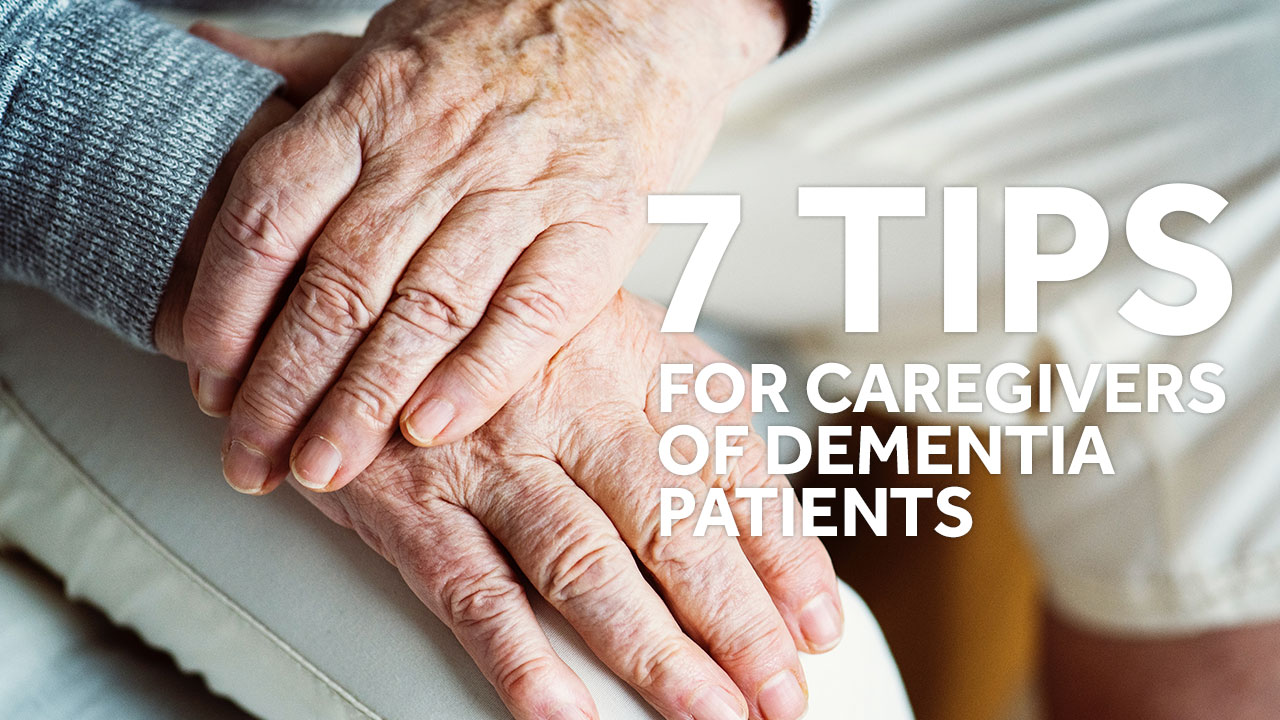February 20, 2019
7 Kindness Tips for Caregivers of Dementia Patients
For the countless numbers of people who are caring for dementia patients you may be experiencing something called “compassion fatigue”. Below are a few tips to make your role a little easier and to help the patient feel more connected to you.
Use the technology available
There are some amazing new technologies that can be very useful when treating those with dementia. For example, there is Paro, the therapeutic robot, which looks a little like a seal and has been designed to allow those who suffer with dementia to feel a sense of interaction and tactile stimulation. Paro has been proven to improve relaxation and motivation, amongst other things, and it could revolutionize dementia treatment.
Jane Byrne from FirstCare knows a little about dementia. She says that, if you notice someone, particularly if they are over the age of 65, forgetting things, or finding it easier to remember things that have long since passed, then it is perhaps time to go to the doctors. If dementia is caught earlier, then this will give you many more options for treatment.
Be patient-centered
Patient centered care is one of the biggest trends in care at the moment. It involves one simple premise: asking what the patient wants. If you are caring for an elderly patient, just ask them what they need as part of a care package. Do they want certain types of food? What types of thing do they like? Asking simple questions like this could mean that the care you provide is more personalized, more tailored, more appropriate, and most of all more kind. Perhaps the most important question to ask yourself if you want to be kind and patient centred to your patients is: how would I want to be cared for?
Indulge their memories
Many people with dementia can give more weight to their memories than to their present lives, particularly if they are at an advanced stage. My grandmother for example, who has vascular dementia, often mistakes family members for someone from the generation above, e.g. her daughter for her sister. There are two schools of thoughts on this: one could constantly correct their mistakes, or go with it, as long as they are happy. Many take a middle ground: correcting some things, but often going with it. You will only upset them if you are constantly correcting them. Kindness is important in any care setting, but nowhere more so than when working with those with dementia. Carl Rogers put it welll when he discussed ‘unconditional positive regard’: always tryand step into the shoes of those who are caring for, and act with kindness towards them, though you may not agree with them.
Take a break
Caring for someone with dementia is extremely difficult. You will perform your duties better if you take regular breaks, as you will be able to refresh yourself for the demanding nature of the tasks: caring for someone with the condition can be demanding both physically and psychologically. Taking breaks may be difficult, but it is not impossible. If you are a professional caregiver, make sure you take your breaks at the allotted time. If you are a family member who has taken on the responsibility of caregiver, ask other family members or professionals to relieve you of your duties regularly, even if this is just for a little respite to recharge your batteries.
Seek help
Related to the above point, you are perhaps not an expert in all areas of care. Even if you are a professional, you will not be a social worker, a nurse, a pharmacists, etc. Seek the help of these professionals and appreciate the valuable role that they can fulfill. It is not weakness to admit that you don’t know something: it will instead allow your patient or relative to get the care that they need. Though you may want to do everything yourself, this is not the kindest thing to do: it may be that you can get your relative or friend more appropriate care if you just give yourself a break.
Celebrate all victories
We know that dementia is a degenerative illness. Therefore, things will get worse over time. However, this does not mean that there is no quality of life, and that there will not be moments of clarity and precious times still to cherish. Celebrate these. For example, my grandmother recently contracted sepsis. On her recovery, she was surrounded by her family members, drinking tea and eating her mid-day meal. She looked at pictures of our children, and engaged in the conversation. This is the kind of small victory that should be celebrated, rather than dwelling on the difficult times.
As you will know if you are reading this article, it is difficult and demanding to care for someone with dementia. However, the above tips will help you make this journey easier, if still not easy.
Add Your Comment
I work at a retirement community in Bridgeville, PA, #countrymeadows . What a great article! I am going to share with my coworkers. Thank you!
MARCH 13, 2019 %>
